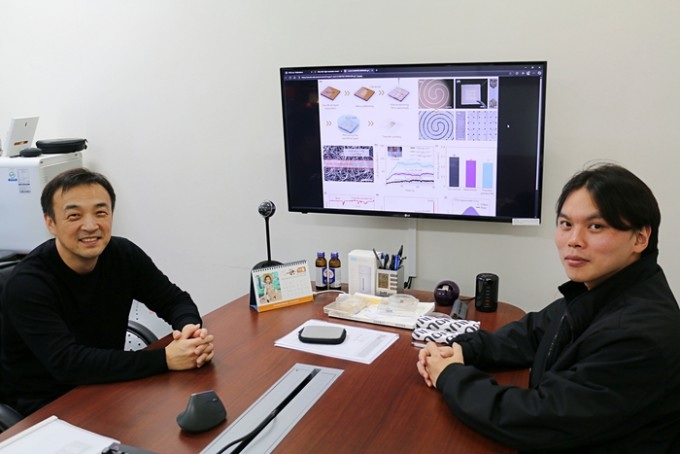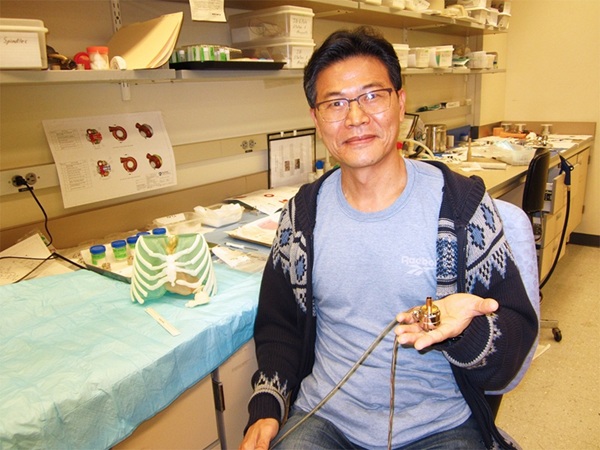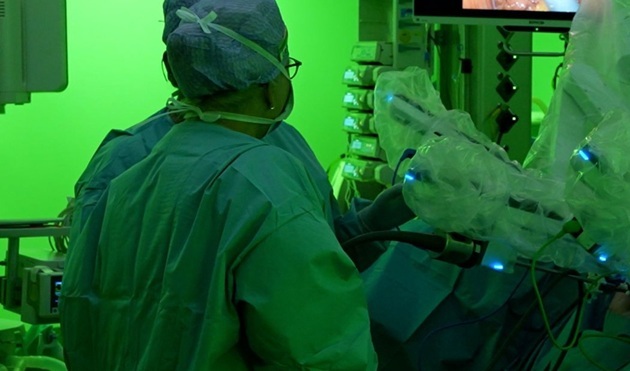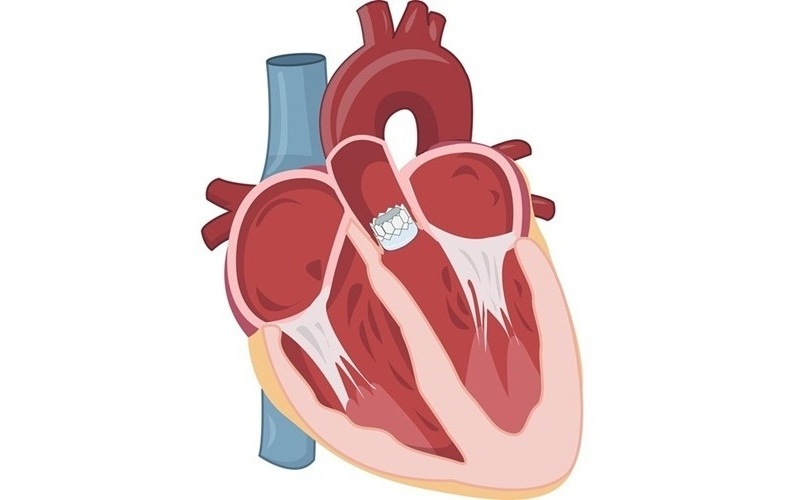AI Program Could Aid Decision-Making in Medical Imaging
|
By HospiMedica International staff writers Posted on 24 Sep 2018 |

Image: The Explainable Artificial Intelligence (XAI) program can help with decision-making in various medical fields (Photo courtesy of Raytheon BBN Technologies).
Researchers are developing a first of its kind neural network that explains itself and could help with decision-making in the medical field, among others. Raytheon BBN Technologies (Cambridge, MA, USA) is developing the neural network under the Defense Research Project Agency's (DARPA) Explainable Artificial Intelligence program (XAI). The aim of the XAI program is to create a suite of machine learning techniques, which produce more explainable models while maintaining a high level of performance. It also aims to help human users understand, appropriately trust and effectively manage the emerging generation of artificially intelligent partners.
The Explainable Question Answering System (EQUAS) by Raytheon BBN will allow Artificial Intelligence (AI) programs to 'show their work,' increasing the human user's confidence in the machine's suggestions. EQUAS will show users which data mattered most in the AI decision-making process. Using a graphical interface, users can explore the system's recommendations and see why it chose one answer over another. Although the technology is still in its early phases of development, it has the potential to be used for a wide-range of applications. As the system is enhanced, EQUAS will be able to monitor itself and share factors that limit its ability to make reliable recommendations. This self-monitoring capability will help developers refine AI systems, allowing them to inject additional data or change how data is processed.
"A fully developed system like EQUAS could help with decision-making not only in DoD operations, but in a range of other applications like campus security, industrial operations and the medical field," said Bill Ferguson, lead scientist and EQUAS principal investigator at Raytheon BBN. "Say a doctor has an x-ray image of a lung and her AI system says that its cancer. She asks why and the system highlights what it thinks are suspicious shadows, which she had previously disregarded as artifacts of the X-ray process. Now the doctor can make the call – to diagnose, investigate further, or, if she still thinks the system is in error, to let it go."
Related Links:
Raytheon BBN Technologies
The Explainable Question Answering System (EQUAS) by Raytheon BBN will allow Artificial Intelligence (AI) programs to 'show their work,' increasing the human user's confidence in the machine's suggestions. EQUAS will show users which data mattered most in the AI decision-making process. Using a graphical interface, users can explore the system's recommendations and see why it chose one answer over another. Although the technology is still in its early phases of development, it has the potential to be used for a wide-range of applications. As the system is enhanced, EQUAS will be able to monitor itself and share factors that limit its ability to make reliable recommendations. This self-monitoring capability will help developers refine AI systems, allowing them to inject additional data or change how data is processed.
"A fully developed system like EQUAS could help with decision-making not only in DoD operations, but in a range of other applications like campus security, industrial operations and the medical field," said Bill Ferguson, lead scientist and EQUAS principal investigator at Raytheon BBN. "Say a doctor has an x-ray image of a lung and her AI system says that its cancer. She asks why and the system highlights what it thinks are suspicious shadows, which she had previously disregarded as artifacts of the X-ray process. Now the doctor can make the call – to diagnose, investigate further, or, if she still thinks the system is in error, to let it go."
Related Links:
Raytheon BBN Technologies
Channels
Critical Care
view channel
Breathable Electronic Skin Paves Way for Next-Generation Wearable Devices
Electronic skin devices are designed to adhere closely to the human body to monitor health and biosignals, but long-term use often leads to skin irritation caused by trapped sweat and poor breathability.... Read more
AI Transforming Colon Cancer Diagnosis
Colon cancer remains one of the most common and deadly cancers worldwide, with diagnosis often relying on time-consuming procedures such as colonoscopy and histopathological analysis. Delays or inaccuracies... Read more
Ventricular Assist Device Offers Long-Term Use in Children Waiting for Donor Heart
Children with severe heart failure often face long and dangerous waits for a donor heart, with limited options to keep them stable during this period. For patients between the ages of one and 11, there... Read more
Precision Approach Improves Immunotherapy Effectiveness for ICU Patients with Sepsis
Sepsis occurs when the immune system responds abnormally to an infection, often triggering life-threatening organ failure. Despite affecting around 49 million people globally each year and causing approximately... Read moreSurgical Techniques
view channel
Minimally Invasive Surgery Proven Safe and Effective for Complex ‘Whipple’ Procedure
Tumors of the pancreatic head often require a highly complex operation known as pancreatoduodenectomy or the Whipple procedure. This surgery involves removing multiple structures and creating several internal... Read more
Catheter-Based Procedures Offer Less Invasive Option for Treatment of Valvular Disease
Valvular heart disease, caused by tight or leaky valves between heart chambers, affects up to 10% of older adults and leads to more than 120,000 deaths globally each year. Traditional open-heart surgery... Read morePatient Care
view channel
Revolutionary Automatic IV-Line Flushing Device to Enhance Infusion Care
More than 80% of in-hospital patients receive intravenous (IV) therapy. Every dose of IV medicine delivered in a small volume (<250 mL) infusion bag should be followed by subsequent flushing to ensure... Read more
VR Training Tool Combats Contamination of Portable Medical Equipment
Healthcare-associated infections (HAIs) impact one in every 31 patients, cause nearly 100,000 deaths each year, and cost USD 28.4 billion in direct medical expenses. Notably, up to 75% of these infections... Read more
Portable Biosensor Platform to Reduce Hospital-Acquired Infections
Approximately 4 million patients in the European Union acquire healthcare-associated infections (HAIs) or nosocomial infections each year, with around 37,000 deaths directly resulting from these infections,... Read moreFirst-Of-Its-Kind Portable Germicidal Light Technology Disinfects High-Touch Clinical Surfaces in Seconds
Reducing healthcare-acquired infections (HAIs) remains a pressing issue within global healthcare systems. In the United States alone, 1.7 million patients contract HAIs annually, leading to approximately... Read moreHealth IT
view channel
EMR-Based Tool Predicts Graft Failure After Kidney Transplant
Kidney transplantation offers patients with end-stage kidney disease longer survival and better quality of life than dialysis, yet graft failure remains a major challenge. Although a successful transplant... Read more
Printable Molecule-Selective Nanoparticles Enable Mass Production of Wearable Biosensors
The future of medicine is likely to focus on the personalization of healthcare—understanding exactly what an individual requires and delivering the appropriate combination of nutrients, metabolites, and... Read moreBusiness
view channel
Philips and Masimo Partner to Advance Patient Monitoring Measurement Technologies
Royal Philips (Amsterdam, Netherlands) and Masimo (Irvine, California, USA) have renewed their multi-year strategic collaboration, combining Philips’ expertise in patient monitoring with Masimo’s noninvasive... Read more
B. Braun Acquires Digital Microsurgery Company True Digital Surgery
The high-end microsurgery market in neurosurgery, spine, and ENT is undergoing a significant transformation. Traditional analog microscopes are giving way to digital exoscopes, which provide improved visualization,... Read more
CMEF 2025 to Promote Holistic and High-Quality Development of Medical and Health Industry
The 92nd China International Medical Equipment Fair (CMEF 2025) Autumn Exhibition is scheduled to be held from September 26 to 29 at the China Import and Export Fair Complex (Canton Fair Complex) in Guangzhou.... Read more













